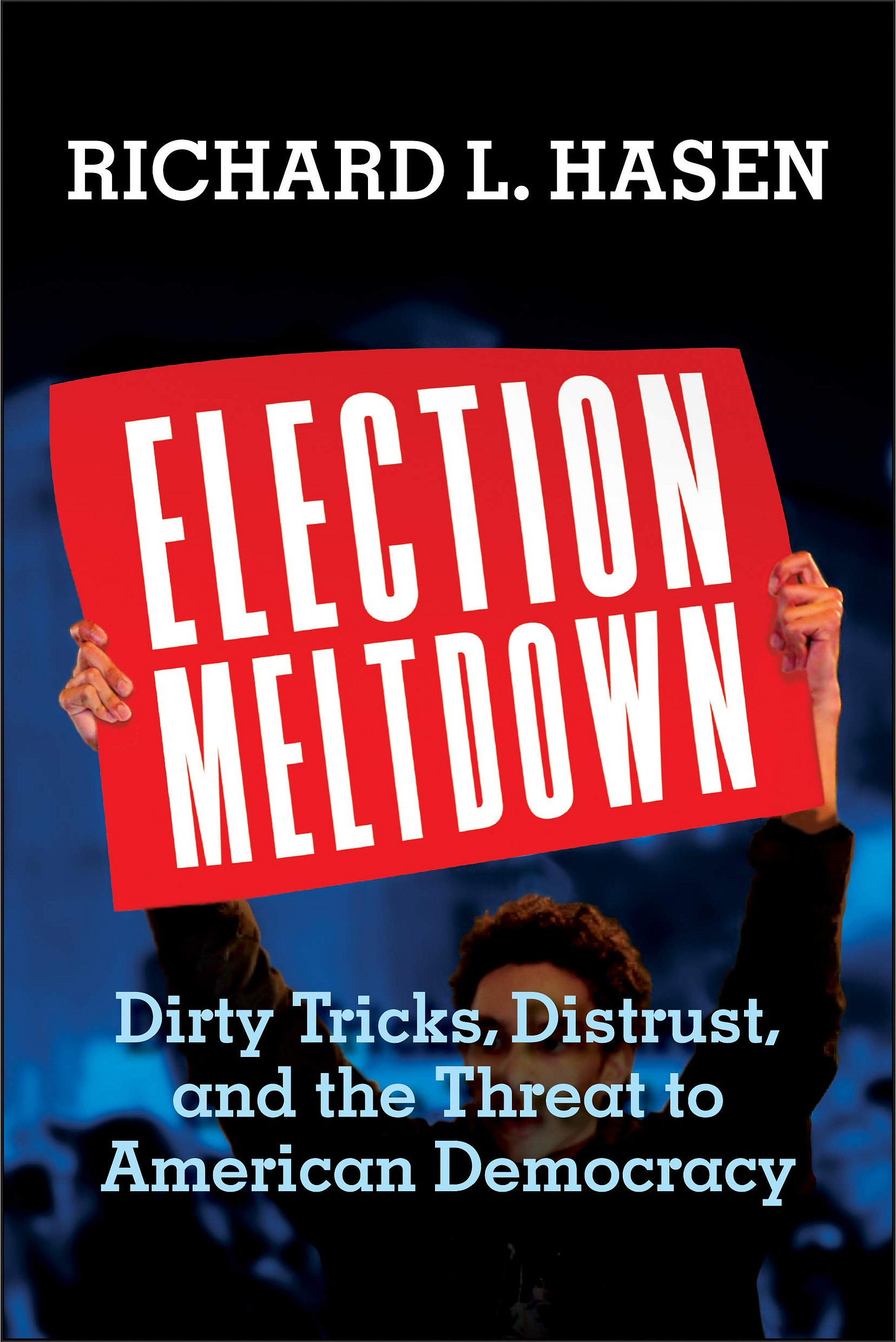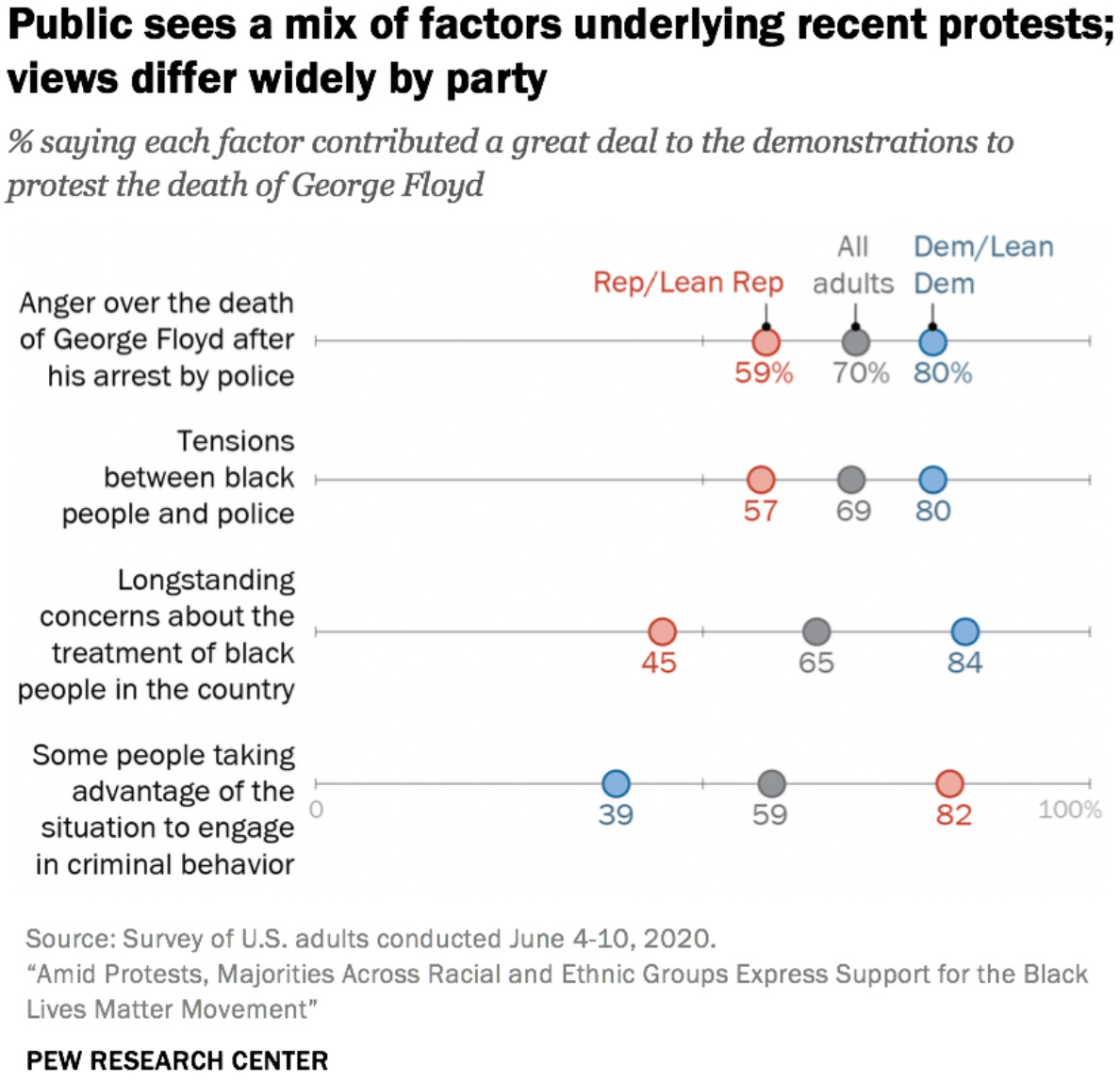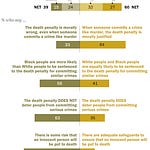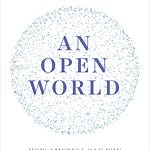(Click audio player above to listen)
6 Minutes or Less: Can America Run a Fair Election?
This newsletter-only feature will be available only to paid subscribers: I ask a thought leader or expert to educate/enlighten/explain an issue via audio in 6 Minutes or Less.
Issue: Following the latest voting disaster this week in Georgia’s primary – broken machines, inadequate poll workers, 8-hour lines, voters who simply gave up and left – the question of whether we can run fair elections has again been raised.
Guest: Rick Hasen, Chancellor’s Professor of Law and Political Science at the University of California, Irvine and author of the new book “Election Meltdown: Dirty Tricks, Distrust, and the Threat to American Democracy.”

Like the newsletter? Help spread the word and share it with a friend.
The World
A new spike in Beijing Covid-19 cases mirrors early stages of outbreak in Wuhan, as the Chinese capital shut down its biggest vegetable market and declared “wartime management” in one district where more than 50 people tested positive. (South China Morning Post)
The sister of North Korea’s leader warned of retaliatory measures against South Korea that could involve the military, in the latest escalation of tensions over defectors from the North who have been sending back propaganda and food. (Reuters)
Majorities across racial and ethnic groups express support for the Black Lives Matter movement, while deep partisan divides exist over the factors underlying George Floyd demonstrations. (Pew Research Center)

Protesters shut down a major highway in Atlanta and set fire to a Wendy’s restaurant where Rayshard Brooks was shot by police as he tried to escape arrest. Meanwhile, Atlanta Police Chief Erika Shields resigned. (Reuters, Atlanta Journal Constitution)
Florida fired its coronavirus data scientist; now she’s publishing the statistics on her own. Meanwhile, turning down pleas from Gov. Mike DeWine to stay on the job, Dr. Amy Acton surprisingly resigned as director of the Ohio Department of Health. Acton became both a beloved and polarizing figure for her candid, personal talks at news briefings and for issuing orders closing down parts of the state’s economy that some found excessive. Separately, new research estimates that up to 45 percent of SARS-CoV-2 infections may be asymptomatic. (Washington Post, Columbus Dispatch, Science Daily)
Profiles & Reads
The story behind the photo: "Around 6:10 p.m., my phone buzzed in my pocket — I usually have it on silent when I'm working because I don't want an unexpected ringtone to distract me from the moments I'm photographing. I saw it was my photo editor Mary Ann Gerth. She said the paper needed a scene setter, an image that shows how many people are at a particular scene and what it looks like. I didn't think I could make the deadline if I relied on the usual work mode of a laptop and hotspot. ‘Probably iPhone pic at this point. 15ish minutes,’ she texted.” (Louisville Courier Journal)
The city that really did abolish the police — and rebuilt the department from the ground up. The strange, hopeful, politically complicated story of Camden, N.J. (Politico)
The death of engagement: Orville Schell writes that for almost a half century, the U.S. and China have operated under a fragile policy framework of "engagement." But with the two countries facing their most adversarial state in years, it’s worth revisiting how we got to this moment — and why it didn't have to end this way. (The Wire China)
What Hannah Arendt can teach us about work in the time of Covid-19. The philosopher’s distinction between work and labour should guide our attempts to build a better society. (New Statesman)
A 17-year-old’s guide to building the world’s biggest pandemic and protest trackers: The coronavirus pandemic and the protests have been the defining events of 2020 so far, and in both cases one 17-year-old has played a major role online: Avi Schiffmann, the creator of the web’s preeminent covid-19 case tracker and, more recently, a protest tracking site. (MIT Technology Review)
Two conversations with Fiona Hill, the former senior director for Europe and Russia in the national security council who testified in Congress’ impeachment investigation. Hill discusses her working-class roots, studying Putin — and the turmoil of Trump’s White House, as well as noting that “Trump thought I was a secretary.” (Financial Times, The Guardian)
Australia’s Water Is Vanishing. Scorched by climate change and drained by industrial farms, the country’s most important river system is nearing collapse. Meanwhile, the vultures aren't hovering over Africa – and that's bad news. (Bloomberg, The Guardian)
Bob Dylan agreed to a phone chat from his Malibu home with historian Douglas Brinkley, which turned out to be his only interview before next Friday’s release of “Rough and Rowdy Ways.” Brinkley had a brief follow-up with Dylan one day after George Floyd was killed in Minneapolis: “Clearly shaken by the horror that had occurred in his home state, he sounded depressed.” (New York Times)
Good News
Sundar Pichai is now the highly paid CEO of tech behemoth Alphabet—last year he earned $280 million. But he came from humble beginnings in India, as he recounted in a YouTube video aimed at students graduating from college this spring. Pichai’s family didn’t have a telephone until he was 10 years old. He didn’t have regular access to a computer until he was a student at Stanford. When he moved to California for grad school, he noticed that a backpack cost more than his dad’s monthly salary. The point of his comments was that students should be hopeful about the future. But it was a rare look at Pichai’s early life. (The Information)
Did you like the newsletter? Why not subscribe now? During this trial period, you get 50% off the regular cost. Continued thanks to everyone who already has done so!












New Spike